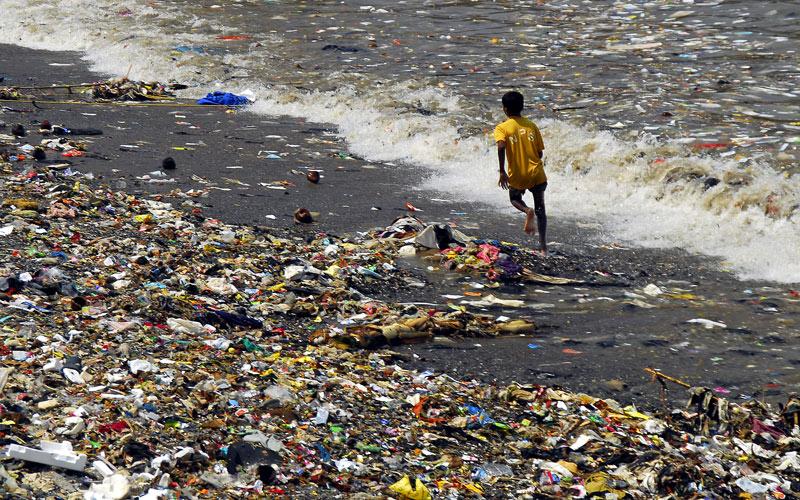The problem Imagine you returned home and discovered your house was flooding. As you frantically try to figure out what to do, you discover you left your kitchen sink running, it overflowed, and is drowning the rest of the house. Now think to yourself, what would you do? Run for the mop to start cleaning up the mess? Or, turn the kitchen sink off?
It’s no different in the ocean. Our oceans are being inundated with plastic; from large nylon nets to microplastic bits, plastics of every type and size are impacting every oceanic ecosystem. Yet projects to date are working to “mop up” the mess before they turn off the kitchen sink. While plastic collection arrays and beach clean ups are effective, they will never succeed in cleaning up the oceans because they are not doing anything to keep more and more plastic from entering the oceans. They are working on cleaning up the mess of plastics in the ocean without addressing or fixing the root of the problem.
Turning off the faucet
In a recent paper published in Science, Dr. Jenna Jambeck and her team determined that the vast majority of plastic entering the oceans is coming from South East Asian countries where there increasing population is outgrowing the current waste management infrastructure. This leads to an incredible amount of “mismanaged plastic waste” that ends up on the streets, rivers, and, ultimately, the ocean. The large developed countries we think of as the main plastic consumers have better waste management systems in place, which reduces their overall mismanaged plastic waste that ends up in the ocean, but it does not stop it completely.
Taking Action where it matters most.
We found the “kitchen sink” for the plastic problem in the ocean, now it is time to act.
That’s where we come in. Rather than spending time and money trying to collect plastics from the ocean, Plastics for Change takes an upstream approach and tries to get to the plastics before they ever become a problem in the ocean. By promoting more efficient and thorough waste management systems in the countries that need the most help; we aim to keep tons and tons of plastics from ever entering the oceans.
We are turning off the kitchen sink on the plastic problem, will you join us?
For more information on how to help check out http://plasticsforchange.org/












